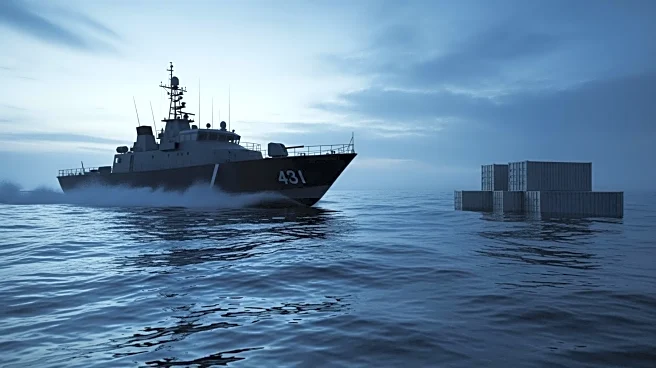What's Happening?
President Trump has criticized the longstanding U.S. strategy of interdicting drug boats at sea, labeling it ineffective despite recent record cocaine seizures by the U.S. Coast Guard. Trump has authorized
military strikes on suspected drug boats, resulting in 80 deaths, which has sparked international criticism and concerns over extrajudicial killings. The Coast Guard, however, reported a record seizure of 225 metric tons of cocaine over the past year, highlighting the success of traditional interdiction methods. Critics argue that the intelligence gathered from captured smugglers is crucial for targeting cartels, and that the military strikes may undermine these efforts.
Why It's Important?
The shift in strategy from interdiction to military strikes represents a significant change in U.S. counternarcotics policy. While the Coast Guard's record seizures demonstrate the effectiveness of traditional methods, the Trump administration's approach has raised ethical and legal concerns. The strikes could potentially damage international relations and the U.S.'s global standing. Additionally, the cost of military operations may outweigh the benefits, as experts suggest that the intelligence gathered from interdicted vessels is invaluable for long-term drug trafficking prevention.
What's Next?
The debate over the effectiveness of military strikes versus traditional interdiction methods is likely to continue. Stakeholders, including human rights groups and international leaders, may push for a reassessment of the current strategy. The Coast Guard may seek increased funding to enhance its interdiction capabilities, while the Trump administration may face pressure to justify the legal and ethical implications of its approach. The ongoing demand for cocaine and the robust supply chain may further complicate efforts to curb drug trafficking.
Beyond the Headlines
The ethical implications of the military strikes raise questions about the U.S.'s commitment to human rights and international law. The potential for collateral damage and the targeting of low-level smugglers rather than cartel leaders may undermine the effectiveness of the strategy. The focus on cocaine, rather than fentanyl, also highlights the complexity of addressing the opioid crisis, which requires a multifaceted approach beyond interdiction.










